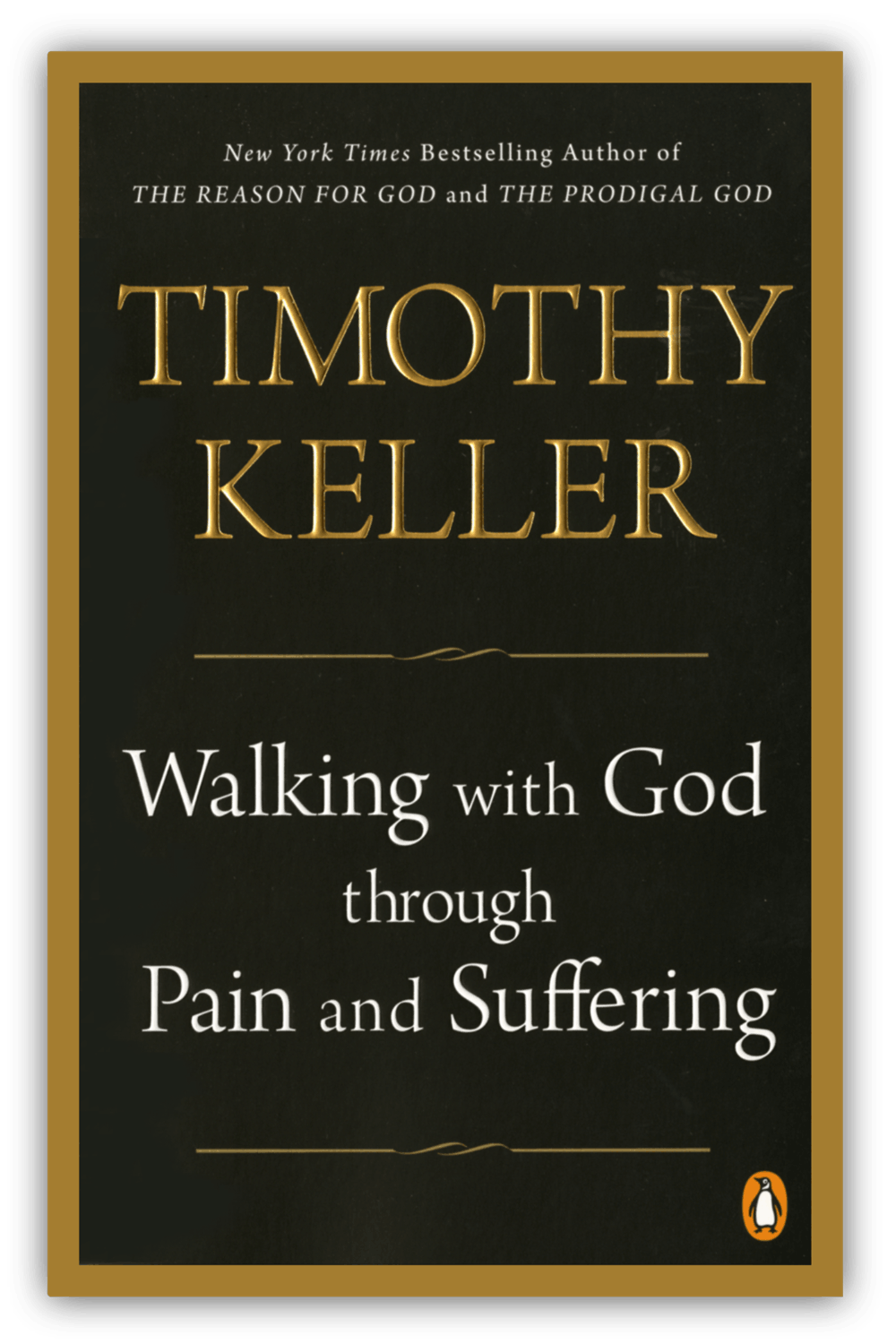The portion of this article by Tim Keller was originally written for the Redeemer Report (Feb 2005) — “Reflections on Faith and Politics.” In the featured portion of this article, Dr. Keller gives two points for why politics must not supplant our faith and biblical wisdom.
Introduction from Kathy Keller (Oct 2024):
Although Tim wrote this article over 19 years ago, after the 2004 presidential election, his insights are as timely now as they were then.
Over the years Tim talked with many professing Christians who had very strong political views from a variety of perspectives. They would often be very emotional and sometimes consumed by what they perceived to be unacceptable political affiliation by their Christian sisters and brothers within our church. He would always point them back to Christ and remind them that our identity is in Christ and not with a political party — that our politics do not guide or shape our faith, but rather the gospel should inform every aspect of our politics; and that we should live a life that reflects the gospel, rather than having our lives defined by a particular political view.

In this excerpt from Tim’s original article, he lays out two key points that are helpful to us now. First, he reminds us that the way we will change the culture is not through political power, but through living out the gospel and sharing it with our neighbors with kindness and love. Second, the way to address the needs of our culture is by Christians serving alongside each other as we care for our neighbors, regardless of whether they believe as we do.
Always remember that power, as Jesus defined it in Matthew 20:25-28, is not the power to compel others to do what we want them to do, but the power to serve.
In John 13:3-4 it says:
3 Jesus knew that the Father had put all things under his power, and that he had come from God and was returning to God; 4 SO he got up from the meal, took off his outer clothing, and wrapped a towel around his waist. 5 After that, he poured water into a basin and began to wash his disciples’ feet, drying them with the towel that was wrapped around him.
Christ was clearly aware of his identity and power, but he used his power not to control, but rather to serve as the lowest of servants. He didn’t use that power to defeat his enemies (“I could call down 12 legions of angels …”) but as he said before, the Son of Man came not to be served but to serve. He expected us, as his disciples and his friends, to do likewise.
My prayer is that we who are Christians would turn our energy and attention first and foremost to sharing the hope of Christ, living missionally in the neighborhoods, workplaces, and relationships where God has placed us. May we see how the power of Christ’s love will do far more to change our culture than the gaining of political power ever could. Let us put our faith in Christ, the king of all creation.
May we see how the power of Christ’s love will do far more to change our culture than the gaining of political power ever could.
Reflections on Faith and Politics – By Tim Keller (Feb 2005)
Post election, there has been an explosion of interest and debate about the relationship of religion to politics. Here are some things I believe Christians should keep in mind as they listen to and participate in this debate during the coming year(s).
First, we should recognize that politics is “downstream” from culture. During this election, both sides claimed to be “battling for the soul of the culture.” But politics can only respond to major cultural trends, not create them. For example, in 1905, no politician, no matter how powerful, could have passed sexual harassment legislation. The culture had to change before such laws could be formulated and enforced. Interestingly, even the Civil Rights movement of the ’50s and ’60s is now being seen as more of a religious movement than a political one (see David L. Chappell’s book, A Stone of Hope, 2004).
Culture changes when a society’s mind, heart, and imagination is captured by new ideas that are developed by thinkers, expounded in both scholarly and popular forms, depicted in innumerable works of art, and then lived out attractively by communities of people who are committed to them. Politics only comes along later and responds to what is happening. It may resist or support cultural changes, but it can’t generate them.
The current obsession with politics misses this. A particular group cannot “change the culture” by taking power. Any group that simply goes after power without aiming to serve the common good will not win the hearts of society; the basic narratives animating such a group will not capture society’s imagination. This is not to say that Christians should be less involved in politics than they are, for example, in scholarship, art, journalism, education, film-making, literature, and business. But we should not think that politics is any more central to the forging of culture than these other pursuits. It may, in the final analysis, be less so.
Therefore, the level of apocalyptic rhetoric (on both sides) is very discouraging. After the election many conservatives were saying “The ’60s are over! The culture is changing!” and many liberals were saying “Our dream of a free society is crumbling.” Such talk is not only overblown but dangerous. It is dangerous because it makes an idol out of politics — it makes politics the ultimate thing. When people no longer believe in Truth, there’s nothing left but power, and then politics is everything. That’s not how Christians should see it! So culture is not changed by politics — politics only slows down or speeds up cultural trends.
Second, we must recognize that neither political party is driven by the breadth, balance, or basis of biblical ethical concerns. The Enlightenment overturned the premise on which all traditional cultures had been built when it asserted the sovereignty of the individual over the family and the community. It made individual fulfillment the ultimate good. This idolization of the individual is so dominant today that it is the bedrock assumption of both sides in U.S. political debates. Liberals think government should control and redistribute income, but should leave people free to do whatever they choose in the area of personal morality. Their radical individualism comes out in their views of abortion and marriage.
…neither political party is driven by the breadth, balance, or basis of biblical ethical concerns.
Conservatives, on the other hand, think government should control and forbid personal morality, but should leave people free to do whatever they choose with their money. Their radical individualism comes out in their deep distrust of the public sector and in their understanding of poverty as mainly a failure of personal responsibility.
If you are more concerned about abortion, changing sexual mores, and the severe secularization of the public square, then you will tend to vote Republican. If you are more concerned about racial discrimination, marginalization of the poor, and the erosion of the environment, then you will tend to vote Democrat. Of course the problem is that all of these things are concerns for anyone who reads and trusts the Bible. What are we to do? I think each Christian will have to find his or her own “tie-breaker” among the various biblical concerns and then choose a candidate.
But as we do that, we should not idolize one party and demonize the other. The two-party system does not serve Christians well. Currently it virtually forces us to leave half our faith at the door — either personal wholeness ethics or social wholeness ethics. Our spirit toward those in the other party should be cordial, respectful, and humble. Unfortunately there are few voices speaking with such tones in the political world today.
Concluding thoughts from Kathy Keller
Please read this short excerpt from Tim’s and my devotional book – Proverbs: God’s Wisdom for Navigating Life.
“If you are wise, your wisdom will reward you; if you are a mocker, you alone will suffer.”
— Proverbs 9:12Ancient wisdom taught that you would thrive as a person only if you put the needs of your family and community above your own self-interest. Our modern culture rejects that entirely. We are told to “be true to ourselves,” to decide who we want to be and then to demand that our community and family recognize and honor that regardless of its impact on relationships. Today we sacrifice the good of the group for the absolute freedom of the individual. The result is an increasing number of people who feel disconnected and lonely.
Mockers sneer at the values and beliefs of any community. Thus the mocker has no real friends, and in the end he suffers alone. Christians absolutize not the will of either the individual or the community but the will of God. When we believe the gospel, the barriers of pride that divide us are taken away (Ephesians 2:14-16), and the lonely are put into families (Psalm 68:6; John 1:12-13). Salvation leads toward more and deeper relationships but sin toward being alone.
Presently, some who profess to be Christians act as if the time for kindness, gentleness, and the other fruit of the Spirit is over and we need “to fight fire with fire” as they mock those with whom they disagree. Their view is that those with different political convictions are not just mistaken, but “evil” and we have to be ruthless with those we oppose politically.
Jesus heard this, from his own disciples most of all, but also from many who understood that he was claiming to be the Messiah. When was he going to take power and overthrow the Roman oppressors? His mission, however, was not to seize political power, but through meekness and service to bring in the Kingdom and remove the oppression of sin and judgment.
Seeking to fix this world while losing sight of eternity is a fearsome trap. What does it profit someone to gain the whole world, yet forfeit their soul? Jesus asks this in Mark 8:36. The answer, of course, is nothing.
Christians, whatever their political goals, must not be mockers, liars, violent, immoral, dishonest, greedy, or any of the other evils that can hide in our hearts and erupt when provoked.
Christians, whatever their political goals, must not be mockers, liars, violent, immoral, dishonest, greedy, or any of the other evils that can hide in our hearts and erupt when provoked. It’s an easy trap to fall into — to think that we know better than God. Just look at Adam and Eve … and everyone after them.
May we who know Jesus Christ as our Lord and Savior… rest in, hope in, and act out of his love for us, demonstrating every fruit of the Spirit to all our neighbors.




